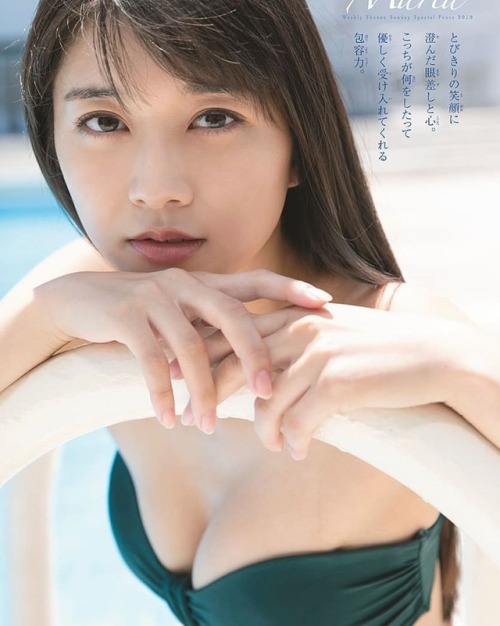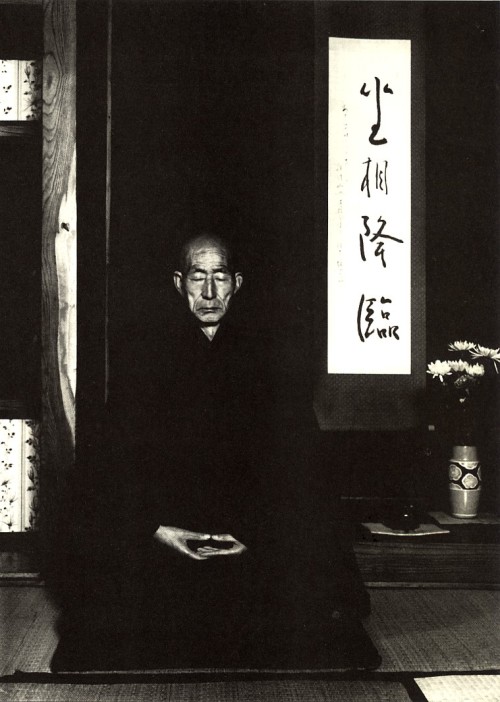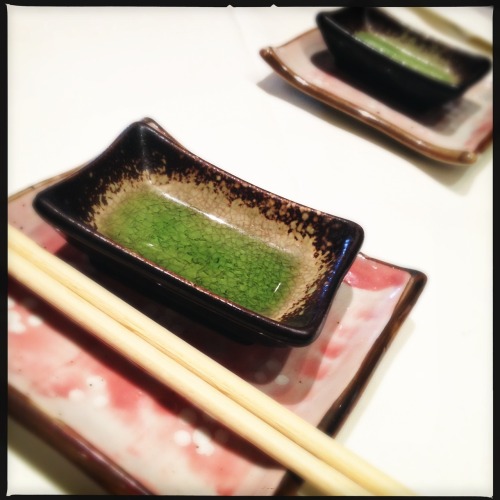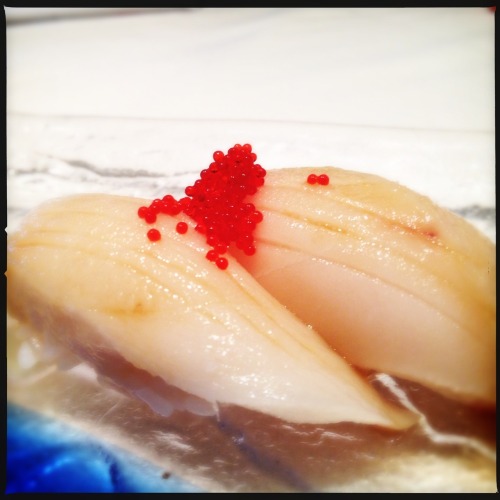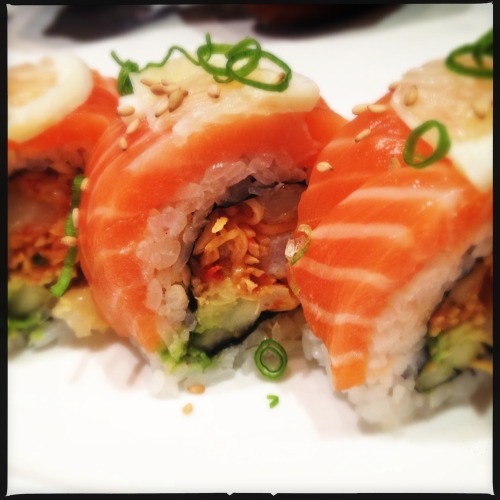#japanese
#中村静香 #shizuka_nakamura #cute #bikini #kawaii #japanese
https://www.instagram.com/p/B0mQf_DhW5_/?igshid=llh6p964j5jt
Post link
#山口真帆 #maho_yamaguchi #kawaii #japanese #japaneseidol #idol #kawaii #写真集
https://www.instagram.com/p/B0mP1_vh5Hv/?igshid=wxmcbwgomin
Post link
#牧野真莉愛 #モーニング娘 #maria_makino #morningmusume #cute #bikini #japanese #japaneseidol #kawaii
https://www.instagram.com/p/B0mPnkYhuul/?igshid=1mzy3t80r375m
Post link
#goodmorning #おはよう #沢すみれ #sumire_sawa #cute #bikini #kawaii #japanese
https://www.instagram.com/p/B0mLkf0BEA1/?igshid=v2ppwi9m84i6
Post link
#早川みゆき #miyuki_hayakawa #cute #black #bikini #kawaii #japanese #japaneseidol
https://www.instagram.com/p/B0vZlE_BE0A/?igshid=mdf78gi3rxej
Post link
Nuru massage (“nuru” = “slippery”) from Kawasaki, Japan. The technique requires one or more nuru masseuses to rub their body against the client’s body when both parties are nude and covered with an odorless and colorless massage lotion. Often, a nuru massage finishes with a sexual act. Along with other forms of sex work, nuru massages are legal in rural areas in Nevada.
Hello, everybody! I hope you all have had at least a good start into the New Year.
A new year means new opportunities, and of course, new decisions. Let’s talk about how to decide things in Japanese.
There are many different moments when you have to make a decision. Do you want the soup or the salad? Pokemon Sun or Pokemon Moon? A morning class or an evening class? In English, this is a pretty unanimous phrase:
“I decided on the soup.” “I decided I want Pokemon Sun.” “I decided to take the morning class.”
More casually, it can be reduced to “I picked” or even “I’m doing”, the latter being a very interesting phrase. You can’t actually “do” a soup, but it’s another way to say that a decision has been made. In that respect, Japanese is similar. But for now, let’s just talk about 決める/きめる.
決める is the literal closest word to the English “to decide”. I mean, 決める means just that, “to decide”.
ニューヨークに行くことに決める。
I decided to go to New York.
パーティのひどりを決めました。
I decided on a date for the party.
その大学に入っていると決めます。
I decided to enroll in that college.
Now, some of you may look at the sentences/translations and feel it’s simple enough. But someone of you may have noticed a small, yet essential difference between the examples: the particles. That’s right, 決める uses に, を, and と. Because it can.
This can be something that can be difficult to explain, and sometimes people don’t bother to explain it at all, but here goes.
に決める
に決める is the most standard paring. It refers to a decision being made.
りんご(をたべるのこと)に決めました。
I decided to eat an apple.
In this case, the (をたべるのこと) is implied to some degree because most likely you would have picked an apple to eat it. In general, always refer to に決める if you’re really stuck. That said, it’s hard to describe the full usage of に決める without going into the other two.
を決める
This is a bit more nuanced than the former example. を決める doesn’t state the decision directly, but rather what the category that is decided upon. Let’s go back to the previous example of eating an apple. If I had to use を決める:
くだものを食べるのことを決めました。
I decided upon a fruit to eat.
Here, the result would likely still be the same: I picked an apple. But this example doesn’t tell you the exact fruit I picked. Instead, it described the category. If we go back to the first を決める example:
パーティのひどりを決めました。
I decided on a date for the party
I’m not telling you the exact date here, am I? If I did, it would be more like this:
パーティのひどりは2月11日に決めました。
I decided the date of the party will be February 11th.
Here, に決める is used because I am sharing the exact result of what was being decide on. Let’s go back to を決める:
くるまを決めました。
I decided on a car.
This is literally all it means. I’m not telling what kind of car, what year, or any specifics. If I did share a specific detail (like a black car or something), に決める is more appropriate because now I’m telling you I decided on a specific car/result.
と決める
と決める is interesting because while it can substitute for either に決める or を決める, it’s actually not a good regular substitute for either. Yeah, I realize I made things more confusing.
The thing about と決める isn’t that is it is following a type of translation rule, but rather an emotional one. と決める is used to create a sense of “Finally!” or “After a long time”. It’s used to convey that a lot of thought and time went into making the decision. If we look at the original example of と決める:
その大学に入っていると決めます。
I decided to enroll in that college.
The use of と決める conveys that it took a long time to decide to enroll in a specific college. This is understandable as college is usually one of those things people try to think about. Let’s look at a comparison between と決める and に決める.
まこととけっこんすることに決めました。
まこととけっこんすることと決めました。
Very literally, they both mean “I decided to marry Makoto.”. Sentence 1 conveys a more natural, easy transition to making the decision to marry Makoto. Sentence 2 conveys a more deliberate moment of consideration. In the second example, maybe there were doubts or issues regarding Makoto as a marriage partner. Maybe in sentence two it was an arranged marriage situation involving multiple options. The point is that the use of と決める means that a long train of thought was put into the decision.
Same thing with を決める:
ダイエットを決めました。
ダイエットと決めました。
Again, both mean “I decided on a diet”. を決める, like に決める, is a more neutral, natural decision making process. と決める is a deliberate, intentional choice within diets.
In summation, に決める is the Foreigner’s Privilege choice. For a non-specific decision, を決める is the best. To convey a serious and considerate decision result, と決める is better.
I’m not really going to do examples for this one because と決める can technically be used as an answer to anything (who am I to judge how long it takes for you to decide on a toothpaste?). But I will ask you to consider specifics vs categories.
Red vs Colors
Cats vs Animals
Target vs Department Stores
Halloween vs Holidays
Lavender vs Flowers
Penne vs Noodles
California vs U.S. States
By keeping in mind conveying a decision on a specific result is に決める and a decision within a category is を決める, you’ve pretty much have a grasp on the difference between the two particles.
As always, feel free to ask if any questions come up!
So, we talked a bit last time about pointing out traits in yourself and others. But, what are traits if you can’t compare them?
How people define things is relative to the things they can compare it to. If you lived in the cleanest place on earth, you’d call my bedroom a pigsty. By comparison, if you lived in complete filth, you’d think my room was the cleanest place on earth. The truth is, we only know what is good because we only know what is bad, and vice versa.
So it is important to know how to compare things. Let’s look at this English sentence:
Tea is more delicious than coffee.
It doesn’t matter if you agree with the sentence or not, but think about how you would say it. In English, you wouldn’t say “Tea is delicious. Coffee is not delicious” because a) you may very well think coffee is delicious to some degree and b) It is too wordy. So how do we do this in Japanese?
In Japanese, there are two main comparison particles: より and ほど. They both translate to “than” in English, but they actually have specific definitions that prevent them from being interchangeable in Japanese.
より
Let’s start with より’s literal translation. It…it actually has a bunch, most of them irrelevant to this lesson. We’re going to focus on it’s literal translation “more than”. より’s a bit weird to translate really. And to prove it, let’s go back to the original example:
Tea is more delicious than coffee.
お茶がコーヒーよりおいしいです。
Literally, the Japanese sentence says “Tea, more (so) than coffee, is delicious”.
Let’s analyze the structure a bit. You want to convey that between tea and coffee, tea is the more delicious option. So, since tea is the focus, tea is the subject. The adjective is naturally last. So in between, you want to make it clear that coffee does not exceed tea in deliciousness. That is why より is chosen. より is picked when you want to compare the subject to something that is not as proficient as the subject in the chosen parameter.
Mina is shorter than Erika.
ミナがエリカより短いです。
Now, keep in mind that より is neutral. All it serves to show is that subject B (Erika) is not to the same degree in shortness as subject A (Mina). Is is a good thing that Mina is short? Is it a bad thing? Who knows. より’s not meant to add emotional conveyance to that. It’s an objective term that is only made subjective based on your own context.
I don’t dance as well as Layla (or less nicely, “I dance worse than Layla)
私がレイラより悪くて踊ります。
Here, you see より, but clearly putting myself in a less desirable position. However, this is still acceptable because I am the superior at being worse at dancing. More literally “I am better than Layla at dancing poorly”.
You see that より can be used with adjectives or verbs. Now, I will warn you to be very careful if you are comparing something in the attribute of a noun. You can’t say “I, compared to Paul, writer”. It took me a whole minute to come up with that sentence because I had to override all the English grammar rules I know. It honestly doesn’t make any sense. You can’t compare with a noun by itself. You can say “I am better at writing than Paul”, “私がパールよりいいさくぶんします”, or “I am a better writer than Paul”, “私がパールよりいいさっかです”.
(Post example edit: Something was nagging me about using that as an example to prove my “Don’t just use straight nouns with より” point. I realized what it was, and I will explain it now. Many of you may be wondering why I used さくぶんします instead of 書く. 書く literally means just “to write”, like putting a pencil to paper. さくぶんします refers to actually making a piece of literature, a poem, a blog post, or anything else people…well, write. Being a writer refers more to さくぶんします since anyone with a writing utensil and paper can 書く. I will keep that example because I really don’t know how often you compare your handwriting to others, and there’s not really a noun profession for handwriting.)
Keep in mind the ending of all these examples are positive. It’s possible to use より with a negative-ending sentence, but it’s…well, that’s why we have ほど.
ほど
Okay, we’ve talked about how to explain if something is exceeding another in a parameter, but what if it isn’t? What if the subject is actually doing worse than something else in some degree?
Let’s look back at our second example, Mina is shorter than Erika. When it comes to height, there are a bunch of different ways to compare things, isn’t there? I could have said Erika is taller than Mina, and that still would have meant the same thing. But what if we are specifically talking about shortness? If the context is requiring me to evaluate in terms of how short someone is, I should probably keep that adjective. But I can’t say:
エリカがミナより短いです。
Because it means that Erika is shorter than Mina now. And I don’t know about you, but I don’t think a person can be shorter than a person that is shorter than them.
So, if I’m stuck with ‘短い”, より is not going to work anymore because the ending has to be in a positive tense. This is where ほど comes in.
ほど has a few meanings, but in this context, it literally means “upper limit, maximum”. It’s used when you want to describe something as the superior to your subject. But there is another twist:
エリカがミナほど短いです。
Try literally translating this and identifying the problem with this sentence. “Erika is shorter than Mina, who is the limit of…shortness”. That…doesn’t make sense. You can’t say that something is better than the thing that is the best of that parameter. You can’t say that ““Cute High Earth Defense Club” is funnier than “Gekkan Shoujo Nozaki-kun”, which is the funniest anime”. Aside from your own personal opinions, the grammar in the sentence doesn’t make sense at all.
エリカがミナほど短くないです。
There, fixed. It now literally means “Erika, with Mina as the upper limit, is not shorter”. Or simply “Erika is not shorter than Mina.” By making the adjective negative, you are reinforcing that Erika is not shorter (in other words, Erika is taller) than Mina.
Let’s go back to the example of me being a worse dancer than Layla. Why would I even say I’m better at dancing poorly? Is there a terrible dancer competition I don’t know about? No (well probably, but how many of those really exist?). I would most likely say:
I am not as good as dancing as Layla.
私がレイラほどいい踊りません。
This way, I remain the subject and I am basing the parameter on who is the better dancer.
Chinese is not as easy to learn as French
中国語がフランス語ほど習いやすくない。
(You’ll remember we discussed about how to talk about verb difficultyearlier)
So here, you see that Chinese is the subject. If your friend was talking about deciding to learn Chinese, you would keep that as the subject, right? You wouldn’t make things confusing by trying to make the subject French. But, if you were taking French or you knew your friend may have taken French before, that would make a reasonable comparison.
Now, keep in mind that with ほど, subject B does not have to be the ultimate in that field. For example:
青が赤ほどよくないです。
If I had to prove that not only is blue worse than red, but red is the best color out of all the colors, we’d be here all day. As far as I know about colors, there aren’t really any that are objectively better out of all the colors. Do I really think Gekkan Shoujo Nozaki-kun is the funniest anime in the world? No. I think it’s pretty funny, but I’m not going to write a post proving that it is objectively the funniest anime in the world. I don’t even know what I would say is the funniest anime in the world. Rinne ½? Persona 4 the Animation? Again, we’d be here all day.
The only thing that ほど cares about is between two things, subject B is the one you feel is superior.
Let’s summarize.
If the main subject is superiorin a parameter, you use より with the comparison.
If the main subject is inferior in a parameter, you use ほど with the comparison and make the end negative.
Try translating these for extra practice! And as always, feel free to ask questions.
Bill is more forgetful than Martin.
Pizza is cheaper than tacos.
Tacos are not as cheap as pizza.
Mr. Smith is a better teacher than Ms. James.
I don’t like watching anime as much as I like reading manga.
I play on my 3DS more than my PS Vita.
Joe does not run as fast as Usain.
I don’t drink as much beer as I do tea.
Answers:
ビルがマーティンより忘れっぽいです。
ピザがタコスより安いです。
タコスがピザほど安くないです。
スミス先生がジェームズ先生よりいい先生です。
アニメを見る事がまんがを読むほど好きではありません。
3DSがPS Vitaよりします。
ジョーがウセーンほど速くて走りません。
ビールがお茶ほどよく飲みません。
Okay, so I’m reading a Japanese webcomic and this line pops up:
父さんの会社、倒産しちゃった。
Translated phonetically:
tousan no kaisha, tousan shichatta
This is a pun based on the fact that the term for “father” and the term for “bankruptcy” are homonyms in Japanese. It actually made me laugh, but I…I wouldn’t even know how to translate this and still keep the joke.
Literally translated it’s this:
Dad’s business went completely bankrupt.
So how do you keep the joke?
I for the life of me can’t figure out something that is somewhat funny enough while still keeping the translation literal.
So perhaps if you see Japanese translation as a career goal, want to challenge your sense of humor, you’re bored, or all three, try to take the time to see if you can create a sentence that conveys the meaning while still having some sort of joke. I’m interested to see what you guys come up with.
Hello, everybody! It’s been a while since I’ve done a K.O., huh.
Today’s Kanji Origins is #15, but that’s not really a milestone. I really should do this more often.
空
This is the character for “sky”. It combines 穴 (space) and the phonetic reading of エ (work). So space + work = sky! I guess. (I feel it is important to note that the “space” we’re talking about here means like “empty space”, like “there is so much space between me and him”. Not “The Earth is in space”) . It’s pretty easy for me to remember because I really like the character. And by “character”, I mean Sora from Kingdom Hearts. \_(ツ)_/
Anyhoo, 空 can be used by itself to mean what it means. However, it also means “void”, “empty”, “vacuum”, and “vacant”. The amount of puns that the Japanese can make with this are staggering. I feel KH is one of the worst offenders, but that’s a different thing.
It’s also pretty common as a unisex name as well, like how people name their kids “Skye” or “Skyler” in English.
空港: airport
空気: air, atmosphere
架空: aerial, overhead
青空: blue sky
空洞: cave
Strangely, 空 is used a lot for “air” in English, but I guess the thinking is that things are in the “sky” rather than the “air”.
中
中 tends to be a kanji a lot of people learn early on. It has a very simple form, and it is used in a lot of beginner’s grammar. It’s also directly from the Chinese language. It’s a 丨inside a 囗 . So, 中 means “inside”. By extension, it also means “middle”. The Chinese use this character in their country name, “中国”’, which refers to them as “The Middle Country”, or what they implied “The Center Country”. They believed that they were the center of the Earth (I guess some still do to some extent), but then a bunch of things happened with Japan (didn’t go well) and they got their first aircraft carrier a couple of years ago and America thought it was cute.
Anyhoo!
中東: Middle East
日中: During the day
中学: Middle school, junior high
中日: China and Japan
中島: Island in a pond or a river
虫
虫 is a character that means ‘insect’ or ‘bug’. But would you believe me if I told you it is supposed to be an image of a snake? Yes, a snake. A very much not bug creature. (And for who knows what reason, they created a new kanji for snake as 蛇, which combines 虫 and 它, which means other. So they made snake ‘other bug’ rather than keep 虫 as snake).
To be fair, considering worms are bugs and do look snake-like, I can understand confusion in a time before etymologists and herpetologists became a thing. You can understand it looks like 中 a bit, but there’s really no relation other than pronunciation. You may also notice that 虫 is used in a lot of diseases in an interesting coincidence of a shared figure of speech; Having a ‘bug’ means that you’re sick, and that is something that is mutual in Japanese.
殺虫剤: Insecticide
虫歯: Cavity, tooth decay
水虫: Athlete’s foot
苦虫: Making a sour face (like you ate a bug)
虫垂炎: Appendicitis
防虫: Insect repellent
弱虫: Weakling, coward (weak as a bug)
交
Next is 交, which means ‘mingle’ or ‘association’. It’s often used in matters of connection and shared activity. It’s supposed to be a man ‘大’ crossing his legs ‘乂’. 乂 is an archaic kanji that means ‘to mow’ or ‘subdue’, but it’s not entirely relevant here.
You need to be a bit careful when 交 is by itself though. Independently, it also has the adverb form of “in succession”, but most people write it in its hiragana form.
Now, I’m not entirely sure why a man crossing his legs was the main image for association, but I guess people don’t normally cross their legs when they’re alone, really only in public.
外交: Diplomacy
交流: Cultural exchange
交通: Traffic, communication
交える: To combine
交響曲: Symphony
交互: Mutual, reciprocal
校
This one should already be familiar as a ‘basic’ kanji. 校 means ‘printing’ or ‘school’, and it’s often paired with the previously mentioned 学 because ‘study’ + ‘printing’ = school. Or ‘learning’ + ‘school’ = ‘school’. Either way, 校 is a very educational kanji.
It’s supposed to be 木 with 交. 交 is simply there for pronunciation, and I’m not necessarily sure why 木 is involved, but I guess that many of the things essential for school and printing are paper and pencil/ink brush which wood was often a part of.
校長: Principal
校舎: School building
母校: Alma mater
全校: The whole school
Hello! Today I’m going to talk about grammar forms that are “in the moment”. That is to say that two things happen around the same time.
Let’s consider these sentences in English:
When the elevator closed, I realized I forgot my wallet.
or
When you get back, please call me.
In both sentences, “when” is used to describe a moment where an action happened. If you’re beginning Japanese, your first impulse may be to translate the sentences into Japanese using “時/とき”:
エレベーターが閉まった時に、さいふを忘れてしまった気づきました。
Hmm. I don’t want to say this is completely wrong, but the correct emotional conveyance isn’t there. 時 is used when it’s a general and extended period of time (学生の時: When I was a student; 結婚した時: When I got married, for example). However, elevator doors closing is usually a swift action.
The second problem with 時 is that people usually remember forgotten things the moment it becomes too late. 時 does a poor job conveying suddenness or promptness. It’s a jack of all trades but master of pretty near nothing; learning to notuse 時 all the time is a strong sign of Japanese fluency.
So, let’s talk about things we can use to replace 時. Mostly, とたん, 次第, and 最中.
Let’s talk about とたん, since it’s the easier one to explain, but a little harder to get.
とたん
とたん’s most precise translation is “just now” or “at that moment”. It’s literally the second A happens, then B. This makes とたん the best fit for our elevator example:
エレベーターが閉まったとたん(に)、さいふを忘れてしまった気づきました。
This is much better, since now there is that understanding of “at that moment”. The listener/reader can imagine the surprise or shock of realizing you forgot your wallet when the doors closed.
I highlighted part of the sentence for a reason. You see, とたん can only be used with a past tense verb. とたん is pretty much always used in regard to an action. It’s even hard to imagine an “as soon as” sentence in English without a verb in past tense. It’s the same scenario in Japanese. Let’s translate a few:
As soon as I returned home, the phone rang.
家に帰ったとたん(に)、電話が鳴りました。
When I finished my homework, I turned on the television.
しゅくだいを終えたとたん(に)、テレビをつけました。
Just as my mom entered the room, we started laughing.
お母さんが部屋に入ったとたん、ぼくたちが笑い始まりました。
I hope you notice something about とたん in these examples:
1) とたん is always used when both clauses are past tense. You can’t say “Just as the door closed, let’s start dancing!”. Even in English that’s weird. とたん must be preceded by a past tense verb, and followed by a past tense verb.
2) I put (に) in parenthesis a lot. I did this to show that に, while used correctly in this form, can be optional. とたん only really uses に as a particle to the point where に is pretty much implied.
次第/しだい
Is it weird I like the aesthetics of this word? Yes? Okay, let’s move on then.
次第 also means “as soon as”, but it’s primarily used in the present. Let’s look at our original second example:
When you get back, please call me.
Well, とたん can’t work here because neither the first or second part is in past tense. 時 is also no good because while “returning” can take a long time, the speaker is obviously referring to a specific instance when the returning is completed. It might even be imperative that the listener/reader call ASAP.
This is where 次第 works. It actually has a second meaning of “dependent upon”, but it doesn’t always work in translation with its other meaning. At this moment, we are only regarding its “as soon as”/”immediately” meaning.
When you get back, please call me.
帰り次第、私を電話に呼び出した下さい。
Let’s note how 次第 is conjugated. The verb is put into its ます form, but the ます is cut off. Also note how the second part is a command/request. This is acceptable.
次第 also implies that the first clause can be done, so you can’t really use potential form with this. Let’s look at another example:
The moment you fall in love, you become weak.
恋をし次第、弱くなります。
Again, the same thing. A ます form verb with no ます, followed by 次第.
Now, this next note is pretty important:
DO NOT USE 次第 with に.
The issue isn’t that に can never be used with 次第. The issue that when they are used together, the meaning changes. 次第に means “to gradually –”. It’s an adverb. For example:
まどを閉め次第に, ライトをつけて下さい。
I…I wouldn’t know where to begin translating this. If the まどを閉め part wasn’t there, this could be “Please gradually turn on the lights”. But since まどを閉め is there, this sentences becomes quite messed up. If に wasn’t there:
まどを閉め次第, ライトをつけて下さい。
As soon as you close the window, please turn on the lights.
There, much better. Of course, this is a valid sentence too:
まどを閉め次第, 次第にライトをつけて下さい。
As soon as you close the windows, please gradually turn on the lights.
If this sentence seems silly to any English speakers, remember that Will Smith will smith.
最中/さいちゅう
And last but not least is 最中. 最中 means “in the middle of”. Despite the presence of 中, it doesn’t have to be the actual middle. Much like in English, 最中 has the same non-exact emotional meaning:
かれのスピーチの最中に彼女が泣きました。
She cried in the middle of his speech.
Now, it’s not always clear what the exact “middle” of something like a speech is. It could be closer towards the beginning or the end. All 最中 does is note that some moment, performance, or action was interrupted by something else.
ざっしを読んでいる最中、医者に呼ばられました。
I was in the middle of reading the magazine when I was called by the doctor.
In this example, I’m using a Verb, but in ーている form. This is acceptable. After all, you have to have been doing an action to be interrupted by it. Even in English, the verb is in -ing form even though this happened in the past tense. Let’s look at one more example.
A: 「今、何をしているの?」 “What are you doing now?”
B: 「宿題の最中だ。」 “In the middle of homework.”
At first glance, B seems to be using a fragmented sentence, but it’s actually complete: “(I’m) in the middle of (doing) homework”. This is also acceptable. It’s clear that 時 couldn’t work in this example. If someone asks what you are doing, “Homework time” is kind of a weird response. This also shows that 最中 primarily serves as a sort of “adverb” noun. It’s a noun that only serves a purpose when describing actions and moments. Therefore, it is perfectly okay to say “I am ‘Noun’”.
Let’s practice a bit, shall we? I’ll write some sentences in English, and you can think about if 時, とたん, 次第, and/or 最中 would work:
1. When you’re done with that, you can go home.
2. When the cat hissed, I started running.
3. I was daydreaming when I saw him.
4. When you are free, call me.
5. My phone always rings a lot when I am sleeping.
6. I hate it when you call me after work! I’m always in a meeting!
Alrighty, let’s see how you did:
1. それを終えたとたん、帰ってもいいです。
それをおえた時、帰ってもいいです。
In this case, both とたん and 時 are fine. The reason is that the sentence in itself doesn’t convey urgency or a sense of immediateness. However, it could. So either is fine.
2. 猫がほえたとたん、はしりました。
Here, there is a strong association with the timing of A and B. A happened first, then B. Further, both are in past tense. とたん is the winner.
3. くうそうふけっている最中にかれを見ました。
Here, the sentence is both in past tense, but the sentence doesn’t convey the sense of an immediate event. Further, “daydreaming” is more likely something to be interrupted. 最中 is the best.
However, one could make the case for 時 if this happens EVERY TIME.
4. あなたが暇になり次第、呼び出してください
あなたが暇な時に、呼び出してください。
Interestingly enough, both 次第 and 時 are acceptable in this translation, only because we don’t have further context. 次第 works well with a sense of urgency or command, while 時 works more as an invitation or a polite request. But, please note what precedes both clauses. 次第 MUST be followed by a verb. To that end, 休む could also work. If the case was for 時, then of course adjectives are fine. But for any verb, it should be in dictionary form in this case.
5. 寝ている最中に電話がいつもたくさんの音を鳴きます。
寝る時に電車がいつもたくさんの音を鳴きます。
Hnnnnn. This is also a weird context one. Remember, 最中 is best when it conveys that something has been interrupted. Naturally, sleep can be interrupted–but it doesn’t have to be. If the speaker is a hard sleeper, but then wakes up in the morning to find a lot of missed texts and calls and notifications, then 時 is better. If the speaker is trying to convey often being woken up, 最中 can be a better bet.
6. あなたが仕事の後にすぐに私を呼び出す物が嫌いだ。いつも会議の最中だよ!
Ah, a tricky two-parter! Yep, couldn’t resist. I’m sure many of you saw “I hate it when” and went through all what we talked about. You’re right to think that とたん, 次第, and 最中 aren’t correct in that part (最中 works in the second part though), but where is 時? The problem with using 時 is that a specific instance, when the listener calls, is describedas disliked by the speaker. If something has frequently happened to the point where it is a norm, and it is being described by an adjective, then 物/もの is actually the correct noun. I may do a more in depth lesson later about 物/もの, but just know that 時 is used when a moment is used as the description, 物 is used when a specific and common moment is described.
So that’s it! It was a bit of a long lesson, but the grammar is geared towards those who are a little more on the advanced side. Hopefully, I helped clear some things up!
Hello, everybody! Today, I’m going to talk about points in times a bit.
いますand あります are pretty standard verbs and some of the first words for newbies. In a nutshell, they both mean “to exist”, where います is for animate objects and あります is for inanimate objects, or rather non-living things even including events and plans. They also have secondary meanings: います also means “[Verb]-continuously” and あります also means “to happen”. We’re going to talk about the latter meanings today, and how it relates to another verb, おきます.
おきます/おく is a verb commonly meaning “to put/place”, but it has a bunch of other meanings too. We’re going to talk about the particular meaning of “doing something in advance”.
Usually, 〜ています is taught early and alone, because it has a pretty common equivalent in English. It means to do a Verb continuously, or in simpler terms “~ing”.
すしを食べています。
[I’m] eatingsushi.
ビデオゲームをしています。
[I’m] playing a video game.
When you want to put a verb into ~ing form, you need to put the verb into its て-form and put an います at the end.
Even in English, there is a noticeable difference between “I eat sushi” and “I am eating sushi”. The former is a very general statement presented as a fact, while the latter describes the current action at a specific time. Imagine this phone conversation:
A: 「B−くん、すしが食べられますか。」
B:「はい、すしを食べます。今、すしをたべています。」
A: “B, can you eat sushi?”
B: “Yes, I eat sushi. I’m eating sushi now.”
Even unconsciously, you can see how B’s first and second statement portray different things.
Now, 〜てあります isn’t the 〜ています when it comes to inanimate things. It has a meaning that can also be applied to living beings. 〜てあります is a little difficult to explain and it’s often explained with ~ておきます. The best way I can think of explaining the two of them is that ~ておきます is to do something in advance, while 〜てあります is to create a continuous situation. Unfortunately, they’re kind of similar in usage:
パーティーのために、ケーキを買っています。
パーティーのために、ケーキを買っておきます。
パーティーのために、ケーキを買ってあります。
I threw in the first sentence just for comparison review.
I’m buying a cake for the party.
I [have presently] bought a cake in advance for the party.
I [have presently] bought a cake for the party.
I realize I have made this more confusing by putting the last two sentences in past tense when the Japanese tense is clearly present, which is why I threw in “have presently”, because while it is heavily implied in Japanese, it’s a little wordy in English, and it makes more sense this way.
The point of Sentence #2 is to describe a particular action, also emphasizing that the cake was bought prior to. This is a single moment in time. The point of Sentence #3 is to describe the situation of now having the cake, and the cake is still around. This is an ongoing moment in time. Next example:
そのレストランに行きたいから、よやくしております。
そのレストランに行きたいから、よやくしてあります。
I want to go to that restaurant, so I already made a reservation.
VS
I want to go to that restaurant, so I have a reservation.
Again, sentence 1 is describing having previously done that action of making a reservation, and sentence 2 is describing the situation of having a reservation.
So in recap:
〜ています: Used to describe an action currently being done [いま]
〜てあります: Used to describe how an action creates an ongoing situation [いまから]
~ておきます: Used to describe how an action is done in advance [あとのために]
Bonus Round time: That being said, I want to briefly go over the difference between 〜てあります and just あります.
アイスクリームがあります。
アイスクリームを買ってあります。
There is ice cream.
I have bought ice cream (which is still around).
Again, slightly different pictures. The first sentences doesn’t describe any particular action, just that ice cream is, well, here. The second sentences makes it clear that the ice cream was bought (I suppose rather than home-made or stolen), or even “There is ice cream that I bought”:
私に買われたアイスクリームがあります。
This is wordy even in Japanese, and even requires the use of passive form and descriptive verbs. The previous sentence is much less wordy and more natural.
wow the new pokemon games look great
holy shit those characters just mean ‘left’ and ‘right’
pokemon left and pokemon right confirmed for 3ds
BTW, left is the Magikarp and right is the Feebas.
For those who read this blog and happen to play video games or read manga, playing those games in Japanese or reading that manga in Japanese as well as English is a pretty good way to immerse yourself in the language to practice your reading.
I recommend Disgaea because on top of being a really fun game, you can change the written and spoken languages between English and Japanese at any time, even for the non-Japanese editions.
Post link
I’m finally getting a handle on my life. With 15 more days of undergraduate, I’m happy to say I’ll be more into my blogs, video games, anime, etc.
So, let’s get started with K.O. 14!
子
This is the character for “child”. It’s supposed to be a picture of an infant…I guess. I mean, it sort of looks like a baby’s head and the bottom half is the blanket? Like many kanji, I’m not too sure what this was originally.
It’s worth noting that while 子 means ‘child’ in a gender-neutral way, it’s often slapped on the end of names for girls. For example, “花子” translates literally to “flower child”, but it’s only used for female children. Same with赤子、紀子、and 月子. I guess it’s almost equivalent to the “-ley” sound ending in English names, where general names that involve the sound are used for girls (like Karleigh and Lilly) or at least unisex (like Ainsley and Riley).
Examples:
子供: child, children
女子: young woman, girl
男子: young man, boy
息子: son
金子: money, funds
皇太子: Crown Prince
子会社: Subsidiary company
親子: Parent and Child
字
Likely due to 子’s common meaning, it is also put in a lot of characters. 字 is a very common character that means, well “character”, “letter”, or “word” (given that a character in Japanese can be both simply the letter or a whole word). It’s most commonly seen in 漢字, the kanji for “kanji” or “Chinese characters”.
The picture is supposed to be a child under a roof “⼧”. It was supposed to convey “being taken care of” at some point, but I’m not too sure what happened.
Examples:
数字: Numbers
文字通り: Literal
点字: Braille
英字: English letter
字数: Number of characters
字幕: Subtitles
字形: Character style/form
学
Again, another commonly used kanji. This kanji means “school” or “field of study”. It’s supposed to be a picture of a covered mind, so take that as you will.
Examples:
学校: school
学生: student
科学: science
医学: medicalscience
文学: literature
留学: studying abroad
女
After covering 男 so long ago, we finally mention 女! 女 means “woman”. Unlike 男 that has two kanji to convey a masculine attribute, 女 is just supposed to be a picture of a woman. Maybe it’s the dance like motion about it? I’m…I’m just not sure.
Fun fact: 女 is often used as the radical for a lot of both positive and negative words, attributing to the fact that no one is sure what a woman is. One of the most notable words to me is 姦. It’s three women together and it means “wicked” or “noisy”. (sarcasm on) Of course (sarcasm off)
Examples:
女性: woman, female
男女: men and woman
彼女: she, her
女優: actress
女王: queen
女神: goddess
好
This is a basic character in both Chinese and Japanese, even though the meaning slightly differs between the countries. It’s a woman and a child together so it must be…good! 好 means something is liked or preferred. It’s exactly what it is–a woman and her child. That’s it.
Examples:
好き: liking, fondness, love
友好: friendship
好評: popularity
好む: to like, to prefer
絶好: best, ideal, perfect
好感: good feeling
穴
Last one for this time. This means “hole”. It’s a picture of 八 under a roof “⼧”. That doesn’t make much sense until you remember that 八 is supposed to represent division. What’s under a roof? The ground. What do you get when you divide the ground? A hole.
Examples:
穴: hole
落とし穴: pitfall, trap
墓穴: grave (the hole in the ground kind)
穴熊: badger
毛穴: skin pores
穴あきチーズ: cheese with holes in them (i.e. swiss)
Yep, just wanted to let everyone know I’m still here! And it’s not like this blog is being specially neglected, I’ve been neglecting all my blogs more than usual in favor of my thesis, which is necessary for me to graduate and wash my hands of school after 19 long years.
Unless I choose to go to grad school of course.
Now, as you can probably tell from the really bad pun on the title, I’m just giving a brief shout out to puns.
A lot of my friends who are bilingual see English as a double-edged sword. It’s a pain to learn and you’re never going to learn perfect English, but once you get some handle on it, you’ve opened up a whole new world of jokes and descriptions and wordplay and it’ll never stop. Sometimes it just happens and you won’t even realize it’s a joke until a second later and it becomes really funny. The special trait to these kind of things is that they do not translate well.
For example, one of my favorite only-English jokes is from a scene from Psych. Psych is a t.v. show about a man named Shawn who solves crimes by pretends to be psychic by using his hypersensitivity, and his partner Gus, who is the only one who knows Shawn’s secret. As you may guess, Gus is the straight man, while Shawn tends to be over the top. Season 4, Episode 4, Gus complains that Shawn has put “Lead Investigator” on all his business cards, when this is clearly a two-person job. Shawn ‘corrects’ Gus by stating it doesn’t say “lead” investigator as in the front man, but “lead” investigator as the investigator of a crude metal.
The joke is while “lead” and “lead” are spelled the same, they have vastly different meanings and pronunciations, and Shawn wasn’t actually wrong in his correction. It could honestly be a misunderstanding.
Another is the popular pun from the English dub of Pokemon, where during a thunderstorm in Season 1, Brock cleverly uses his frying pan as a “drying” pan.
These would be a pain to translate and I do not envy whoever did this.
However, this problem can go both ways. The example is the done to death pun from the English dub of Yu-gi-oh. Whenever there is a match having to do with ANYTHING ghost or death related, a character says “Looks like —- didn’t stand a GHOST of a chance!” Get it? Because “ghost of a chance” is figurative for “zero chance” and it had to do with ghosts! Everyone’s a winner.
Funnily enough, this is actually a literal translation, because the word for both 'ghost’ and 'zero’ is れい (with different kanji) in Japanese. This is a rare example of a mutual pun English and Japanese share. Know this next time you want to impress people with a multilingual pun.
Japan also has fun with homophones too. Part of my research for my thesis is learning about a Non-Profit Organization called “Inaka de Hatarakitai!” This is meant to be 田舎で働き隊, which roughly means “The Countryside-working Unit”. It’s meant to match those who have an interest in agriculture to the farms that need them. However, a few of you probably thought it was 田舎で働きたい, which means “I want to work in the country”. Get it? This is also a pun!
And then in the wordplay category, one of my friends gave me the sentence:
カラオケはこれからOK.
Try saying it out loud. This is “Karaoke wa kore kara ok?” Or “Karaoke wa kore kara oke?”
It can mean both “Karaoke from here is okay.” and “Karaoke is this karaoke.”
Finding the humor in a language is a very important part of learning it and communicating to others, and I find these sort of things enjoyable. If you have any Japanese puns, jokes, or wordplay to brighten my day, I’ll be happy to learn them!
Until next time!



